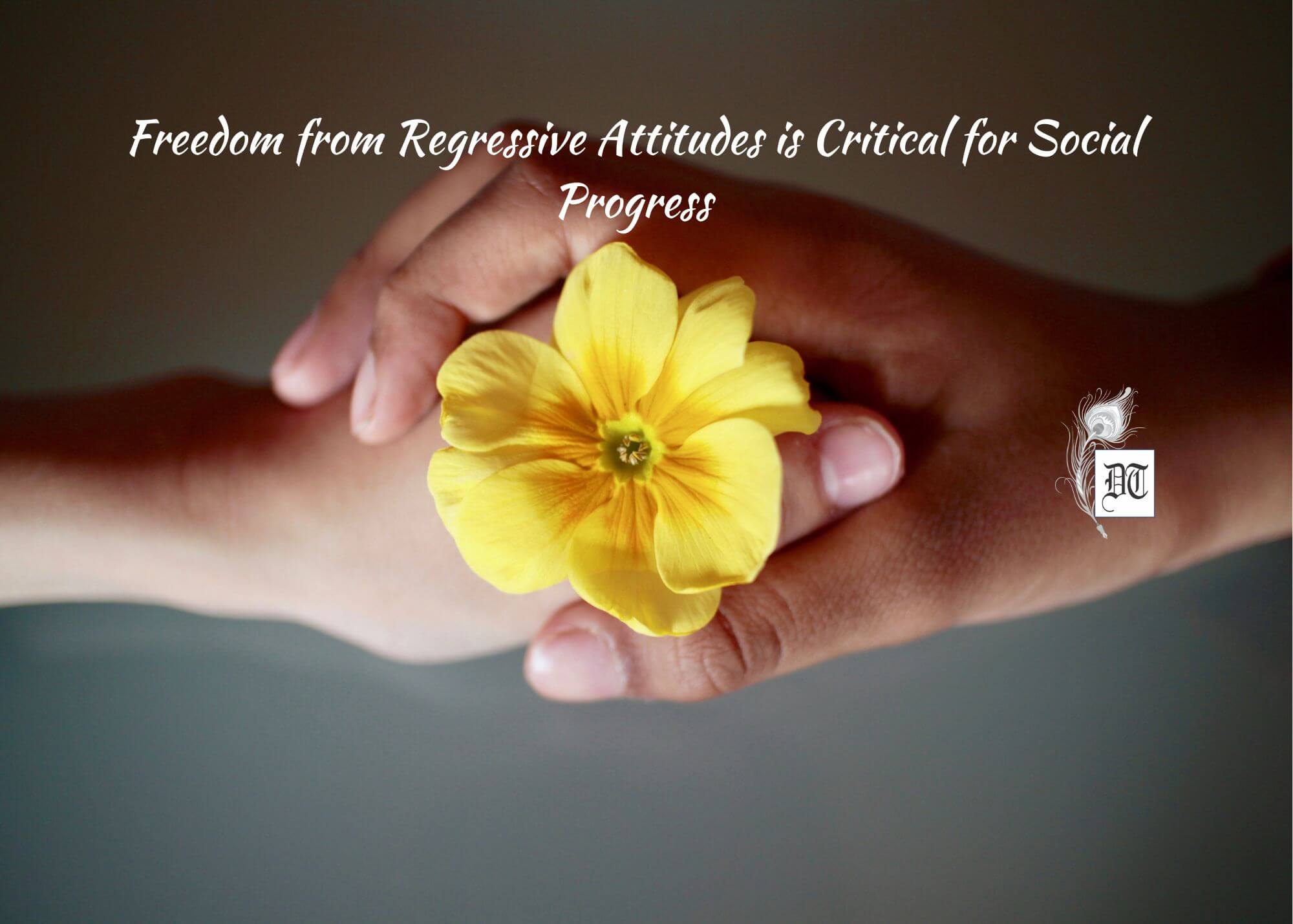Reading Time: 3 minutes
Society values Samskara, but some social attitudes and practices can be peculiar and call for reflection, opines Ram Krishna on the eve of India’s Independence Day, exclusively for Different Truths.
Our society puts a premium on Samskaras. From “namaskar” to “namaste”, the numerous traditional greetings capture the spirit of our respect for an “individual”. The reverence gets reflected through not only spoken language but also matching body language and gestures like bowing down, touching feet, prostration, etc.
Selective Reverence
While this reverence is pronounced concerning the “individual”, this Samskara is conspicuous by its absence when it comes to respecting “institutions”. We respect our parents and elders, yet, outside our homes, we are found wanting to show respect to the guidelines or rules set by residential societies or civic bodies. Again, in line with the guru-shishya (teacher-disciple) traditions, we find it in our students’ respect for their teachers. Yet the same reverential attitude is absent or feeble when the students deal with the norms of colleges, universities, and educational institutes.
This syndrome of selective reverence is also pronounced in the political arena. People accept and hail political figures of various hues. However, they do not appreciate the significance and value of legislative bodies. Again, the elected representatives demonstrate all deference to their party leaders (individuals) but show scant regard to the code of conduct set in assemblies, parliament, or the Election Commission.
In his book Self Renewal, the celebrated author John W. Gardner says, “It is necessary to discuss not only the vitality of societies but the vitality of institutions and individuals. They are the same subject. A society decays when its institutions and individuals lose their vitality.”
Convenient Worship
Worship is a sacred and noble act. We value this Samskara very deeply, practicing it almost daily. Hundreds in number, the idols of gods and goddesses are worshipped with great devotion. We worship all major rivers in some way or the other. Named after gods and goddesses, even hills and mountains are worshipped. Animals and trees are venerated. The list goes on.
As a nation, we just love worshipping, so much so that this inherent nature of worship extends to many other domains of our public life. Hero worship is one of them. For right reasons or wrong reasons, politicians, VIPs in public life, and “Bosses” in organisations are all beneficiaries of reverence and are often fed with servility.
There is worship galore. The act of worshipping is mainstreamed as part of everyday work. Amid this entrenched culture of “worship as work”, one wonders why our worshipping nature has not embraced our arena of “work”.
Max Weber, the famed sociologist, had shown how a mindset on work, ingrained through some tenets of religion (Calvinism), influenced a large number of people in Northern Europe to engage in hard work in the secular world. This work ethic helped develop enterprises and create wealth. Yet, in a nation where the Bhagwat Gita is revered for, inter alia, its strong emphasis on Karma, such attitudes toward hard work and efficiency, are, sadly, yet to get internalised in us, in a way that we can naturally view ‘work’ as our “Sacred Calling”.
Regressive social norms are impediments to social, economic, and moral progress
No surprise, our apathy for institutions and lack of respect for work is manifested in numerous ways. The maladies of slothfulness, corruption, favouritism, red tape, poor efficiency, shortcuts, etc. are just a few symptoms. For a long time, these practices have seriously denigrated our work ethic, eroding the sanctity and vitality of our public institutions.
Meaningful societal progress entails our ability to change societal norms. But the quest for change has to come from those affected by the ill effects of retrograde, deep-set socio-cultural norms. They may be individuals, groups, communities, or institutions, voicing their demands through organised and structured manners and methods. Sustained social awareness and campaigns through engaging ways and creative mediums could provide a pathway to attitudinal change. Strong moral signalling from leaders from different walks of life can also help.
A hallmark of a progressive and modern society is that it sustains itself through its collective conscience. And this conscience can evolve by questioning the status quo of such half-baked Samskaras.
Picture design by Anumita Roy















